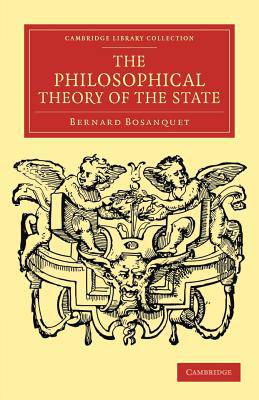
Je cadeautjes zeker op tijd in huis hebben voor de feestdagen? Kom langs in onze winkels en vind het perfecte geschenk!
- Afhalen na 1 uur in een winkel met voorraad
- Gratis thuislevering in België vanaf € 30
- Ruim aanbod met 7 miljoen producten
Je cadeautjes zeker op tijd in huis hebben voor de feestdagen? Kom langs in onze winkels en vind het perfecte geschenk!
- Afhalen na 1 uur in een winkel met voorraad
- Gratis thuislevering in België vanaf € 30
- Ruim aanbod met 7 miljoen producten
Zoeken
Omschrijving
After more than a decade teaching ancient Greek history and philosophy at University College, Oxford, British philosopher and political theorist Bernard Bosanquet (1848-1923) resigned from his post to spend more time writing. He was particularly interested in contemporary social theory, and was involved with the Charity Organisation Society and the London Ethical Society. He saw himself as a radical in the Liberal Party, and at a theoretical level he was a 'collectivist', considering the individual to be a part of a larger social organism. He thought the state should be in harmony with the general will, and that going beyond it would lead to repression. Bosanquet's political ideas are explained in this influential work, which was published in 1899 and ran to four editions by 1923. Bosanquet begins with the theory of state, and then addresses sociological and philosophical ideas about politics before examining the idea of 'will'.
Specificaties
Betrokkenen
- Auteur(s):
- Uitgeverij:
Inhoud
- Aantal bladzijden:
- 366
- Taal:
- Engels
- Reeks:
Eigenschappen
- Productcode (EAN):
- 9781108040235
- Verschijningsdatum:
- 16/02/2012
- Uitvoering:
- Paperback
- Formaat:
- Trade paperback (VS)
- Afmetingen:
- 140 mm x 216 mm
- Gewicht:
- 462 g

Alleen bij Standaard Boekhandel
+ 167 punten op je klantenkaart van Standaard Boekhandel
Beoordelingen
We publiceren alleen reviews die voldoen aan de voorwaarden voor reviews. Bekijk onze voorwaarden voor reviews.









